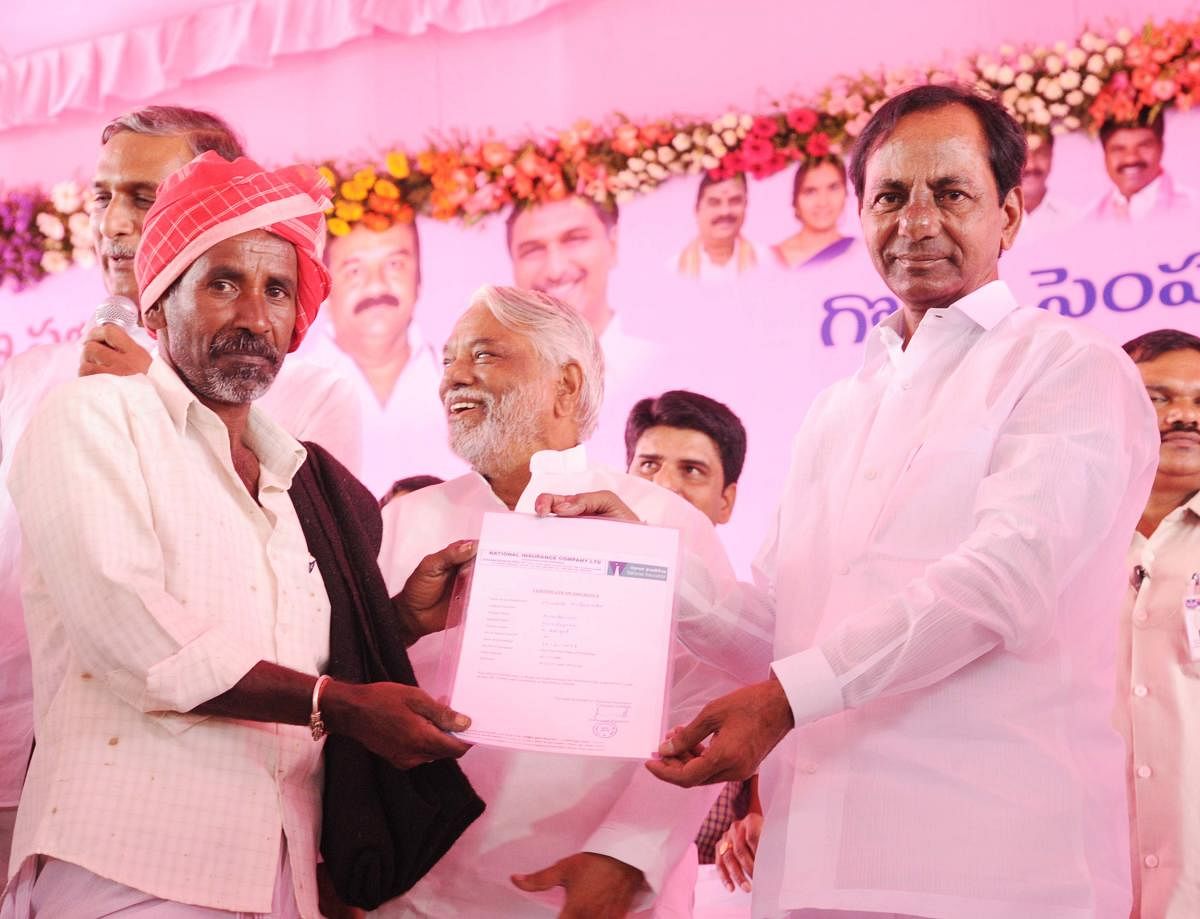
The youngest state in India, which is turning four on June 2, has created a record of sorts by introducing and implementing 60 different farmer-friendly programmes, transforming the subsistence agriculture of a dry land state to a profit-making venture.
A progressive farmer himself, Telangana Chief Minister K Chandrasekhar Rao says, "I know their pains, suffering and hurdles in farming and hence the government stands as the farmer's backbone from sowing to the marketing of agriculture produce".
The government has been providing free and uninterrupted power to the farming sector, waived long-standing farm loans and recently introduced "Rythu bandhu" — farmer input support scheme of Rs 8,000 per acre directly into their accounts through cheques.
As per the NITI Aayog's Agriculture Marketing and Farmer Friendly Reforms Index Telangana is ranked among the top 10 most farmer-friendly states in the country.
"The aim of the government is to prevent migration of poor farmers, to increase their farm production and for enhancing per capita income with advanced agricultural techniques," the Chief Minister says.
He added that purification of land records and distribution of New Pattadar pass books has ended unnecessary litigation among rural folk.
Telangana is the first state in the country to provide 26 % of its annual budget to Agriculture.
Telangana also allocated Rs 3,390 crore in the first year and subsequently Rs 3,397 crore and Rs.8083 crore for the purchase of produce at Minimum Support Prices from farmers.
A separate mechanism has also been put in place for stabilisation of prices of agricultural produce. The state government has been providing tractors to farmers at 50% subsidy while waiving off transport tax on them.
The Telangana government also provides "Saddi Muta" hygienic food at Rs 5 to farmers who bring their produce to market yards in Boinpally, Siddipet, Gajwel and Adilabad.
Efforts are also made to supply seeds, fertilisers and pesticides to farmers at farmers' doorstep through Primary Agriculture Cooperative Societies.
In villages, the government has introduced rural seed production scheme. In each village, 25 farmers are considered as a single unit and seeds are supplied to the units at subsidized prices.
The seed is further sold to other farmers, saving them from spurious seed sold by traders. Speeding up of pending irrigation projects and de-silting of water bodies in villages has further strengthened the farming sector of the new-born state.